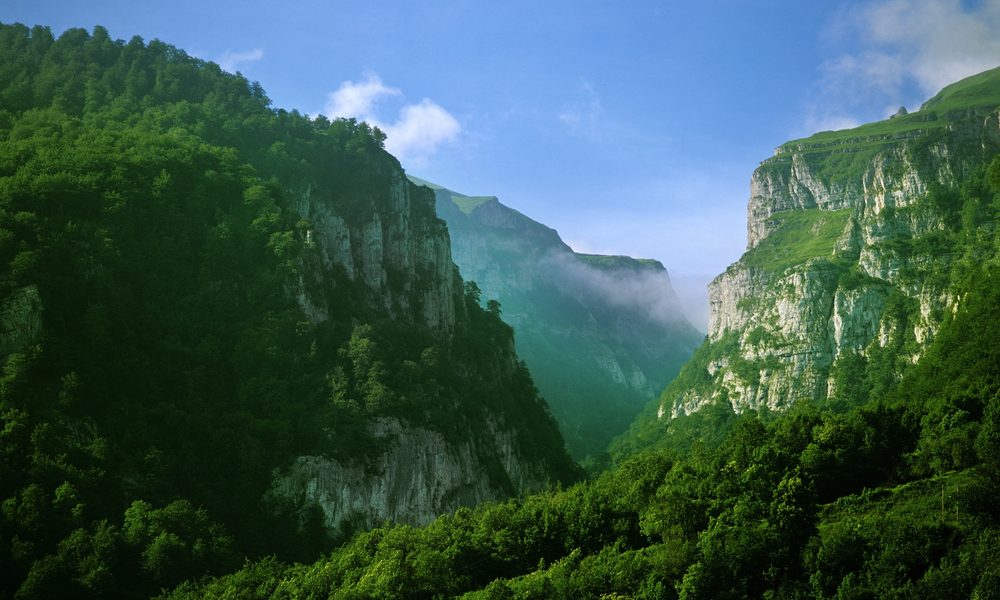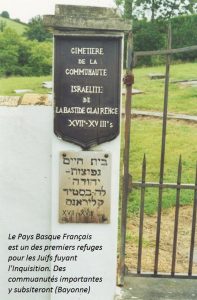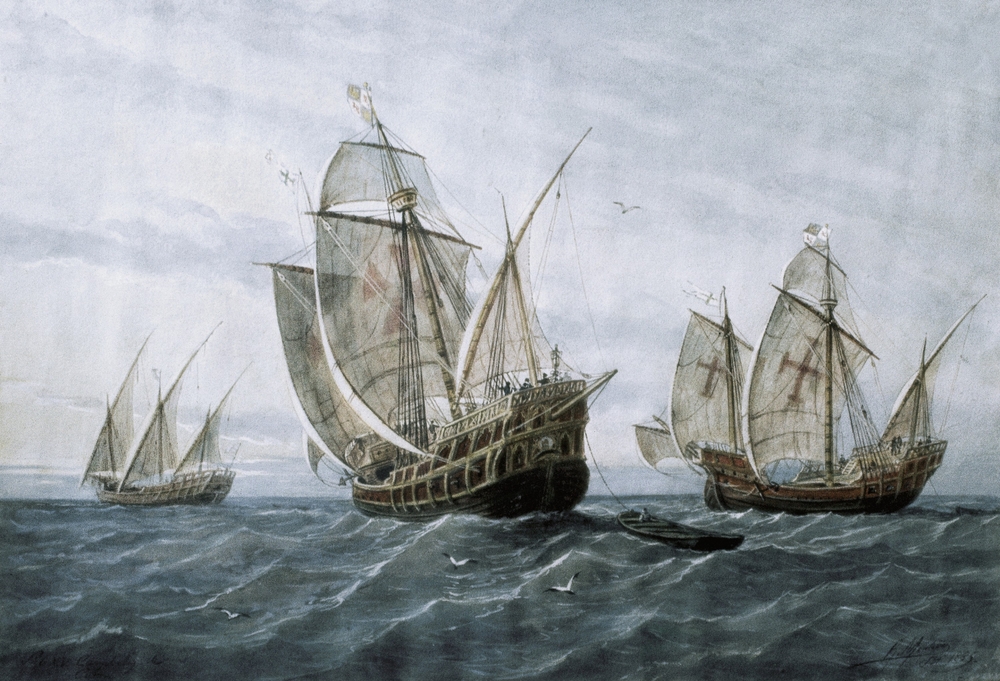
1490 AD to 1510 AD, Psalm 121: The end of Sefarad.
This site was first built in French (see www.147thgeneration.net). The English translation was mainly done using « google translation ». We have tried to correct the result of this translation to avoid interpretation errors. However, it is likely that there are unsatisfactory translations, do not hesitate to communicate them to us for correction.
(for that click on this paragraph)
Summary
This generation of the 1510s and 1520s.
According to our count, this generation is the 121st generation associated with Psalm 121. It is in this Psalm 121 that we therefore find an illustration of the facts of this generation.
This generation marks the end of Iberian Judaism, which begins with the expulsion of the Jews from Spain in 1492. Portugal, which is initially a refuge, follows the example of Spain in 1497. Not wanting to deprive itself of its Jews and newly settled Spanish Jews, Portugal does not leave the choice of exile and converts all Jews by force.
Navarre completed the picture in 1498 by leaving, as in Spain, the choice to its Jews to convert or to go into exile.
The only terrestrial exile are the Pyrenees which gives access to France then to the future European powers of the North. Northern Europe forbidden to Jews but allowed to (new) Christians. Route that will be taken by many Jews, in particular Portuguese Jews forcibly converted despite their absolute loyalty to the Jewish religion.
Simultaneously, America was discovered by the Spaniards in 1492. Africa too began to be explored. For the Jews who have to leave or who will leave the Iberian Peninsula, this opening to the world will be beneficial to them. It is an opportunity to establish new communities in these new countries, and, more easily, in the new European powers wishing to join in the exploitation of this new world.
Talk
The expulsion of Jews from Spain
The break with the Middle Ages found in Psalm 119 with the key date of 1450 (rather 1453) materializes in this generation with another key date: 1492 which anchors the world in modern times.
This year marks the end of Iberian Judaism, which begins with the expulsion of Jews from Spain.
The Portuguese trap
Portugal was initially a refuge especially for the wealthy Jews. For others, the disillusion was quick.
If the situation of the Jews improves with the king Manuel 1st (1495-1521), successor of John II on the throne of Portugal, the hopes of alliance of this last one with the kingdom of Spain involve the second episode of the end of the history of the Jews in the Iberian Peninsula:
- After [1] a few procrastinations, Manuel yielded to the demands of the Spanish crown and on December 5, 1496, signed the edict condemning the Jews at the beginning within a few months. It seems, however, that the sovereign was not satisfied to deprive his kingdom of this new population (from Spain) very useful. Portugal did not have a middle class, and the skills brought by the Jews proved to be of great benefit. Thus, finally, all the Jews of the country were forcibly converted to Christianity in 1497, without any other possibility being left to them.
- The Marranos question thus arose in this country with greater acuteness than in Spain. It was indeed the normative Jewish community itself that had been condemned to apostasy. These were, in addition, those same Jews who had already preferred the rigors of an exile to a conversion to Christianity that had allowed them to remain in the land of Spain. Their fidelity to the religion of their ancestors was a well-documented reality. Their mass conversion had turned them into Christians overnight without altering their inner being in any way. It is therefore hardly surprising that crypto-Judaism has been particularly lively in Portugal.
- The Jews were promised that they had thus been forced to apostasy that their religious practices would be subjected to no inquiry for the next twenty years. Many, however, took the first opportunity to leave the country, in order to return to Judaism. Alarmed by these departures, and acting this time again for the same reasons that led him to sign the conversion decree, the king decided to ban emigration in 1499, in order to keep this population in Portugal. The sixteenth century saw a succession of measures forbidding new Christians to leave the kingdom whose periodic release favored a recrudescence of departures.
- Once the initial shock is over, new Christians become active in the life of the country, and, as in Spain, they end up in all sectors of the economy and administration. The old Portuguese Christians, sharing the feelings of their Spanish counterparts, do not see these successes favorably. Jealousy and hate finally explode in 1506 during a massacre where two thousand new Christians of Lisbon are dead. In 1507, emigration was allowed, and thousands of people managed to leave. This authorization will however soon be suspended, and we will return to the previous situation.
The Pyrenees
The third and final episode of the end of Jewish history, as a recognized religion, in the Iberian Peninsula follows fairly quickly in this same generation:
- In October [2] 1497, there were officially no Jews left in the Iberian Peninsula, with the exception of the Kingdom of Navarre. Under the pressure of his powerful neighbors, the latter was forced to promulgate the last decree of Iberian expulsion, giving the Jews of Navarre until March 1498 to leave the country or to convert to Christianity.
For candidates to leave, outside the sea and the ocean, the only land border of the Iberian Peninsula is the Pyrenees, the only salvation for exile.
This is what the beginning of the Psalm of this generation expresses:

- A song for ascents. I shall raise my eyes to the mountains, from where will my help come?

But if the Jews of the generation of the Great Plague had had to resolve to exile, especially German lands to Poland, this generation that suffered a bane at least comparable to that of the generation of the great plague at the human level sees the exile of the Jews of Spain and Portugal to many horizons, including northern Europe, precisely accessible by crossing the Pyrenees, forbidden to Jews but allowed to (new) Christians.
The exile from Spain by the Pyrenean way is encouraged by the King of France, who by interest, sees only Christians cross the border.
It is difficult to know the number of Jews who took the road to exile and those who decided to stay by converting to Christianity, but it is obvious that Spanish Judaism, which will now be known as Sephardic Judaism, in reference to the Biblical name attributed to Spain, will survive this expulsion. Sephardic Jews will establish new communities all around the Mediterranean basin or merge with existing communities. As for the Portuguese Jews, forcibly converted to Christianity, they will create many communities in the rest of Europe and in the new world by returning to their original religion as soon as possible.
Loyalty to Judaism
This desire of the Iberian Jews to remain faithful to Judaism can be symbolized by this story:
- The trip [3] to the Mediterranean destinations was not a part of pleasure. A passage of « Chevet Yéhoudah » illustrates well the tribulations of the refugees. The chronicler, Shlomo Ibn Verga, relates many tragic episodes which, authentic or not, reflect the suffering of a generation having seen his world suddenly destroyed. In one case, says Ibn Verga, the owner of a rinderpest-filled refugee boat abandoned the Jewish passengers at a desolate spot on the coast, where the majority of them died of starvation. The survivors set off in search of an inhabited place:
- A Jew, with his wife and two sons, tried to leave on foot. The woman, who was of fragile constitution, fainted and died. The man, who carried his two sons, fainted in his turn, as well as his daughters, because of hunger. When he regained consciousness, he saw his two sons lifeless. In his immense distress, he stood up and said, « Master of the universe! You are doing everything possible for me to give up my religion. Be assured that, despite Heaven, I am a Jew and will remain so, and all the misfortunes with which You overwhelmed me or which You will overwhelm me will be of no use. He then covered his sons with earth and branches, and set off again in search of an inhabited place.
This fidelity to God in this dark period in the history of Judaism is the subject of the following of the psalm of this generation:

- My help is from the Lord, the Maker of heaven and earth.
- He will not allow your foot to falter; Your Guardian will not slumber.
- Behold the Guardian of Israel will neither slumber nor sleep.
A new world
At the same time as the Jewish adventure ends in Spain, the world opens. Outside the known continents of Europe and Asia, the world extends to the New World, the name given to the Americas. New world including Africa which only the Mediterranean rim, the East and some shores in the west were really known before. Explorations in Africa will allow, for the misfortune of the African populations, the settlement of the Americas. These discoveries will change the course of modern history.
The Jewish people accompany this enlargement of the world. If until now, the Jews had been exiled in all the depths of the ancient world, they were confined to a small number of time zones, soon following a formula that qualified many empires, the Spanish empire or Portuguese to that of the Commonwealth more recently, the sun will no longer lie on the lands of exile of the Jewish people.
It is this widening of the world which is evoked in the following of the psalm:

- The Lord is your Guardian; the Lord is your shadow; [He is] by your right hand.
- By day, the sun will not smite you, nor will the moon at night.
The expulsion from Spain is not isolated, because in the same generation, Jews undergo many other evictions throughout Europe.
Spain was the last remaining land of stable exile for the Jews, they have remained in relative tranquility for almost a millennium. Now, Jews will have to move from host land to land more and more often in a world that suddenly takes on a much larger dimension.
It is, of course, that the psalmist prays for God to protect his people in all these comings and goings of the people of Israel, which will follow one another at the end of the exile, the end of the night:

- The Lord will guard you from all evil; He will guard your soul.
- The Lord will guard your going out and your coming in from now and to eternity.

[1] Esther Benbassa and Aron Rodrigue: « History of the Sephardic Jews ». Chapter: « The end of Sefarad? « . (French: Esther Benbassa et Aron Rodrigue : « Histoire des Juifs sépharades ». Chapitre : « La fin de Sefarad ? ». (p. 49-51) ).
[2] (led by) Shmuel Trigano: « The Sephardic World – I, History ». Chapter of Yom Tov Assis: « The Expulsion of Jews from the Iberian Peninsula ». (French: « Le monde sépharade – I, Histoire ». Chapitre « L’expulsion des Juifs de la péninsule Ibérique». (p. 207,208) ).
[3] (led by) Shmuel Trigano: « The Sephardic World – I, History ». Chapter of Yom Tov Assis: « The Expulsion of Jews from the Iberian Peninsula ». (French: « Le monde sépharade – I, Histoire ». Chapitre « L’expulsion des Juifs de la péninsule Ibérique». (p. 204,205) ).


